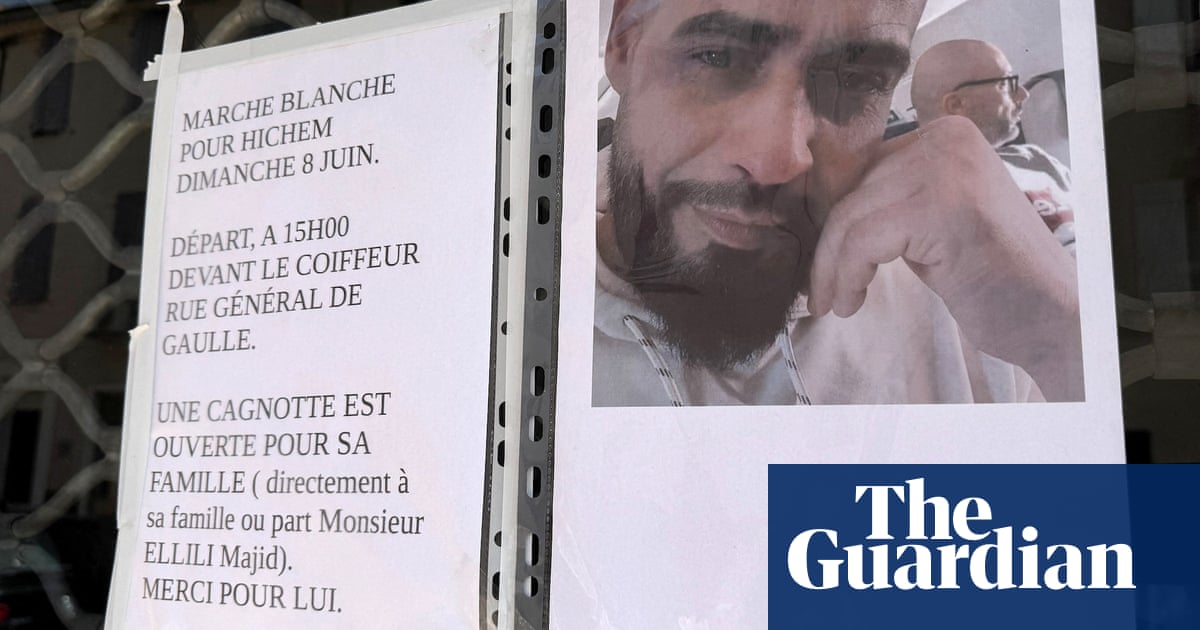French prosecutors have opened a terrorism investigation after a man in the south ofFrance, who they say posted racist videos online, allegedly shot dead his Tunisian neighbour.
Hichem Miraoui, 45, a Tunisian hairdresser who lived in the village of Puget-sur-Argents, near the Mediterranean town of Fréjus, was shot five times near his home late on Saturday and died at the scene.
As local people laid flowers outside Miraoui’s hairdressing shop on Tuesday and prepared to attend a march in his memory this weekend, the murder prompted warnings from anti-racism groups about trivialising racist rhetoric.
The suspected killer, a 53-year-old French man believed to be Miraoui’s neighbour, is thought to have fled by car and was arrested nearby after his partner alerted police. He is also thought to have wounded a Turkish man in the hand.
The regional prosecutor, Pierre Couttenier, said the alleged killer, a sports shooting enthusiast, “posted two videos on his social media account containing racist and hateful content before and after his attack”.
French media reported that the man had sworn allegiance to the French flag and had called on French people to seek out and shoot people of foreign origin.
Specialised prosecutors said they had opened an investigation into a “terrorist plot” motivated by the race or religion of the victims. The suspect wanted to “disrupt public order through terror”, a source close to the case told Agence France-Presse.
The classification of the fatal shooting as a potential terrorist act is significant: it is the first time since the national anti-terrorism prosecution unit was created in 2019 that an apparently racist murder has been investigated for potential connections to ultra-right terrorist ideology.
The murder comes less than two months afterAboubakar Cissé,a Malian man who had trained in France as a carpenter, was stabbed to death inside a mosque where he volunteered in the southern French town of La Grand-Combe. The French national accused of the attack surrendered to Italian authorities after three days on the run and was extradited to France.
Mourad Battikh, a lawyer for Miraoui’s family, said: “Hichem’s death is the direct consequence of an atmosphere fed by stigmatisation … and the trivialisation of racist violence.”
He later toldFrance Inforadio: “We’re looking at an ideology here, a premeditation. Here is an individual who probably did not act alone, who at least did not act on impulse.” He added: “We must take the time to reflect and ask ourselves how do individuals manage to carry out the most hateful crime – to take a life – in the name of the French flag. Today, the French flag is being made into the standard of a hateful ideology.”
Earlier, the anti-discrimination NGO, SOS Racisme, spoke of a “poisonous climate” in France and what it called the “trivialisation of racist rhetoric”.
Bruno Retailleau, the hardline interior minister and head of the rightwing party Les Républicains, denounced Miraoui’s murder as a “racist act”. He told reporters: “Racism in France and elsewhere is a poison, and we can see that it is a poison that kills. Every racist act is an anti-French act.”
Retailleau had been criticised for failing to travel to the scene of Cissé’s murder in April.
Aurore Bergé, the minister for equality and anti-discrimination, toldFrance Info: “The state is mobilising against all forms of hatred.”
